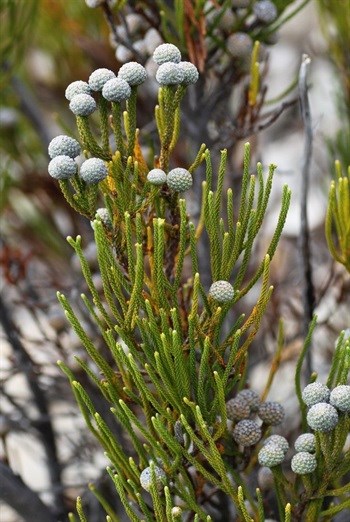
Top stories


ESG & Sustainability#BudgetSpeech2026: SRD grant unchanged, other Sassa social grants see hike
11 hours



More news












ESG & Sustainability
South Africa’s carbon tax should stay: climate scientists explain why










The trend is helping to focus attention on the more than 9,000 indigenous plant species in the Cape. Broadly known as fynbos, species such as the king protea, protea compacta and silver brunia have unusual aesthetic appeal and last longer than other flowers.
Cape Flora SA statistics indicate that in 2016/2017, about 1.7 million stems of silver brunia (Brunia laevis) were exported. It is included in the mixed green stems category used to make up fynbos bouquets. The number of mixed greens exported in 2015/2016 was 12 million and in 2016/2017 it was 13.17 million, a 9% increase.
To manage the fynbos industry sustainably, the trust launched the Sustainable Harvesting Programme for fynbos in 2003. Its committed team of about 15 people partners with farmers, harvesters, communities and government and conservation organisations. Included in its focus is environmental, social and labour compliance for harvesters and pack sheds. CapeNature, a government organisation responsible for biodiversity conservation in the Western Cape, is a major partner in the programme.
Best practice for wild harvesters
The programme’s code of best practice for wild harvesters sets out how they should pick fynbos to conserve the plant and surrounding vegetation. The stem should be cut at a certain length and at a 45-degree angle. It is also vital to leave seed stock in the veld.
For silver brunia and a few other species, research suggests that only 25% to 50% should be harvested each year. The programme’s vulnerability index advises what should and should not be picked for the market. For example, Erica irregularis used to be harvested, but now may not be picked due to its endangered status on the South African National Biodiversity Institute’s Red List.
“The Sustainable Harvesting Programme demonstrates that it is certainly possible to sustainably harvest fynbos in a commercially viable way, creating green businesses and decent, sustainable jobs for people living in the fynbos region,” says Bailey.
Fynbos harvesters range from subsistence harvesters to commercial harvesting teams. The programme is voluntary and is intended to promote the green economy and increase the number of biodiversity stewards on private land.
Read the full article on Business Day Live.

AgriOrbit is a product of Centurion-based agricultural magazine publisher Plaas Media. Plaas Media is an independent agricultural media house. It is the only South African agricultural media house to offer a true 360-degree media offering to role-players in agriculture. Its entire portfolio is based on sound content of a scientific and semi-scientific nature.
Go to: http://agriorbit.com/